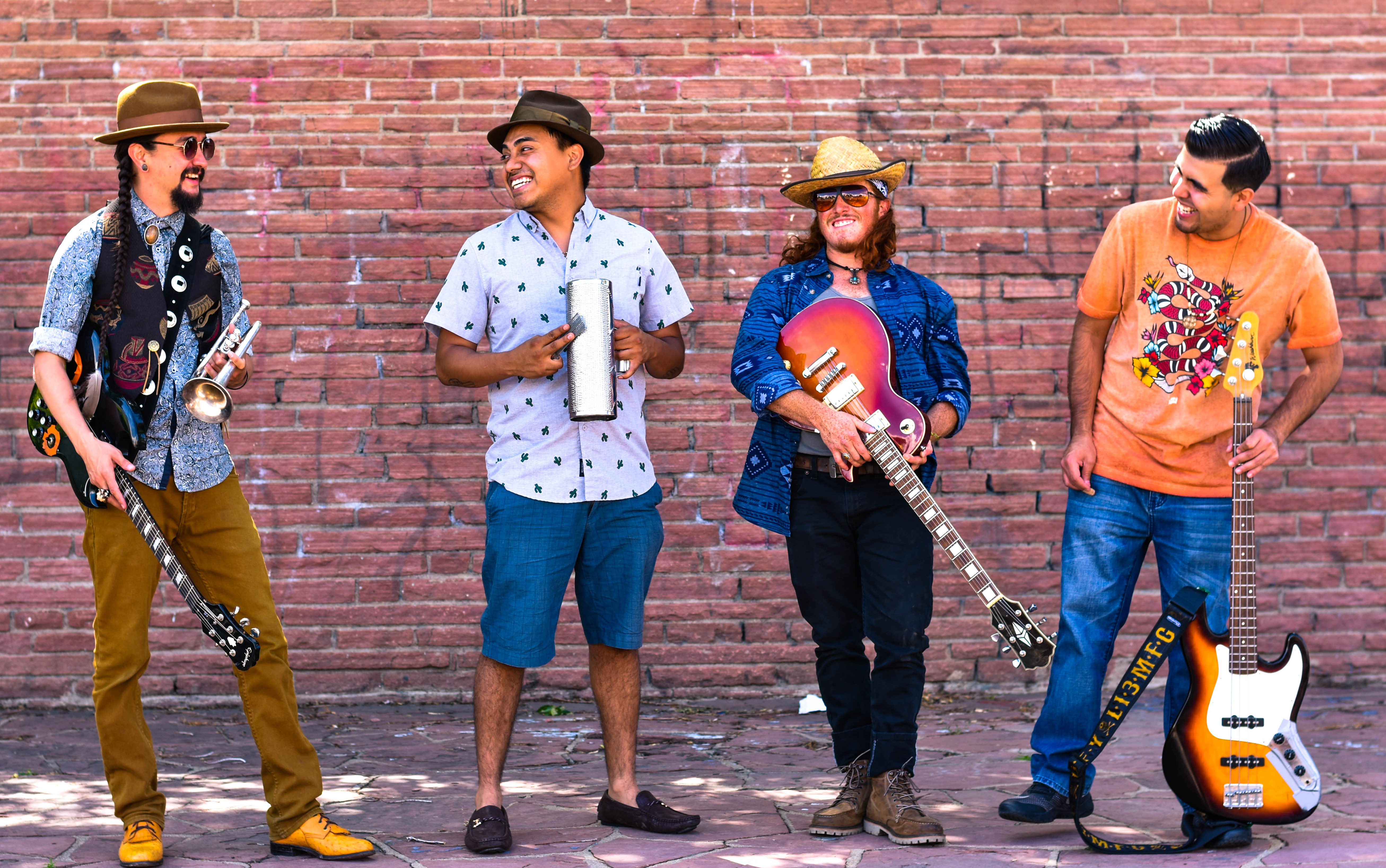Music is a form of creativity that crosses language barriers. It is its own universal language, constantly changing its definition and boundaries through innovation and collaboration. In such a creative format, genres and cultures collide to often create a new form of expression that positively impacts our musical perspective. Cross-over singles have become the new norm, from Lil Nas X’s “Old Town Road” this year to 2016’s summer jam, “Despacito” by Luis Fonsi and Daddy Yankee featuring Justin Beiber. But the one downside of this increasingly genre-less world is that musical roots can be overlooked and sometimes forgotten. As a result, the musical groups that heavily contribute to the deep well of influence pop-culture constantly draws from, often don’t get their proper dues.
Latin American music is one of those categories, often being stereotyped and over-simplified. In a city as diverse as Denver with a history of immigration and development, the Latin American influence remains strong and important to the foundations of this city and its musical history. Their stories are a part of Denver’s story and deserve to be recognized and appreciated. We’ve compiled a list of essential bands that fall somewhere within the Latin music spectrum and talked to them about their roots, their favorite bands and what it means to be Latinx in Denver.
Roka Hueka
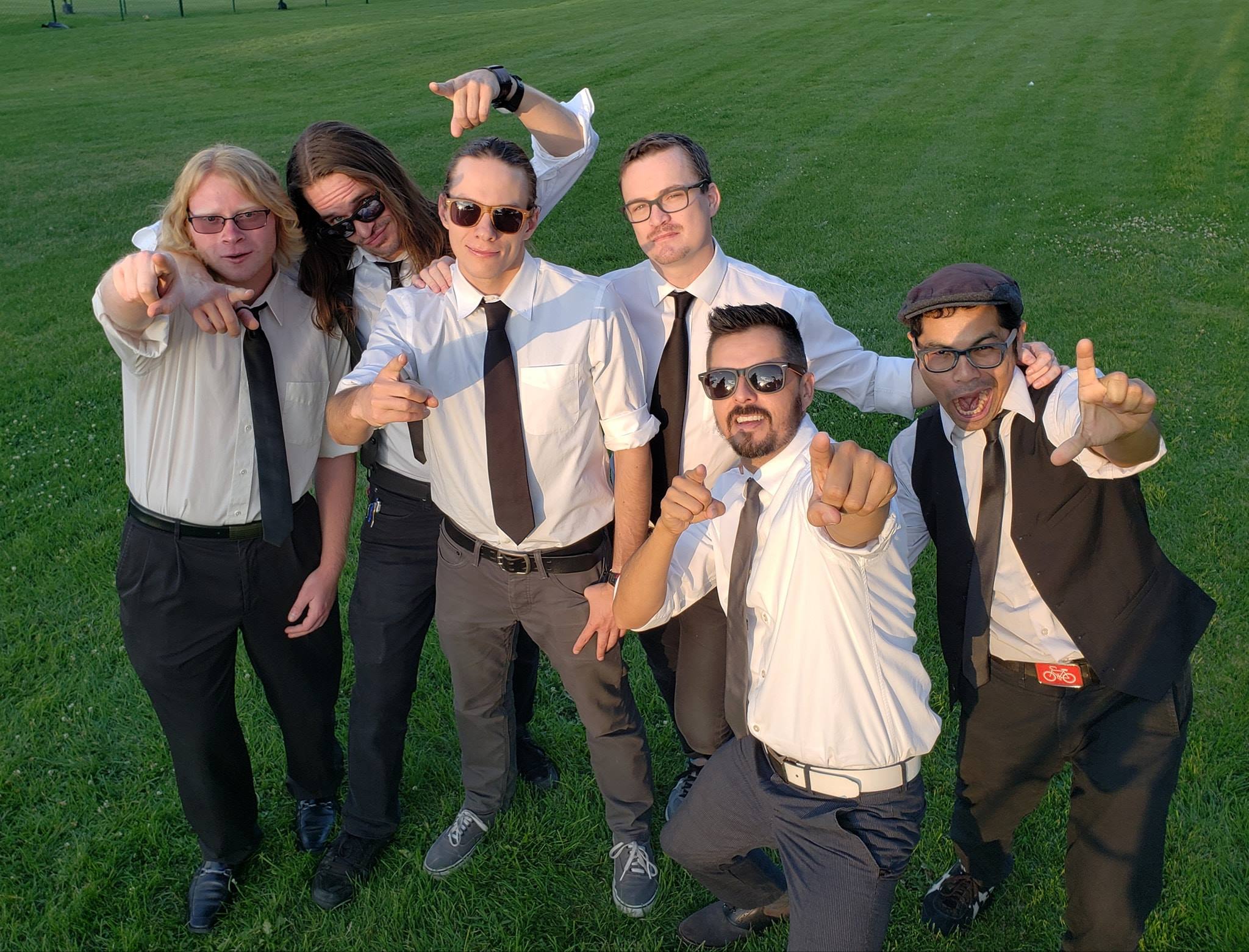
Los Cheesies

303 Magazine: Where does your music take its inspiration from in terms of countries/regions/genres?
Los Cheesies: Our style has influence from both the United States and various Latin American and European countries, namely Mexico, Argentina, and France. We play mostly rock, Latin ska, and reggae, but our genres are not limited to these. We also throw in some cumbia, country and blues, hip- hop, and reggaeton.
303: How have you made it your own?
LC: Eighty percent of our music is original compositions influenced by our own personal stories, politics, love, and the amusing aspects of life. Our music has a unique sound as we utilize a fusion of so many different styles and genres and we incorporate both the Spanish and English language into our music.
303: In a city like Denver, how is your music overall received?
LC: We are so well received across the front range. People feed off the high energy of our band and love the diversity of our band members. Half the band is Mexican and half are Gringos. We sound and appear so unique, people love it!
303: Have you had difficulties within the music industry in Denver that are relevant to the music you play and your heritage?
LC: Yes, when it comes to getting into a new venue where we have never played. First we are not a cover band, so many venues prefer cover bands, and secondly, our music is both languages and some venues see that as a turn-off. But once we perform at their venue, the venue and the audience loves us.
303: For people who aren’t familiar with Latin music, what would you like them to know about it?
LC: Most people think of Latin music as mariachi, mambo, or salsa. All genres of music are represented in Latin Music, from reggae to jazz to rock to cumbia. It is so versatile and has many influences from so many regions. Latin America is a country of immigrants just like the U.S.
Los Mocochetes
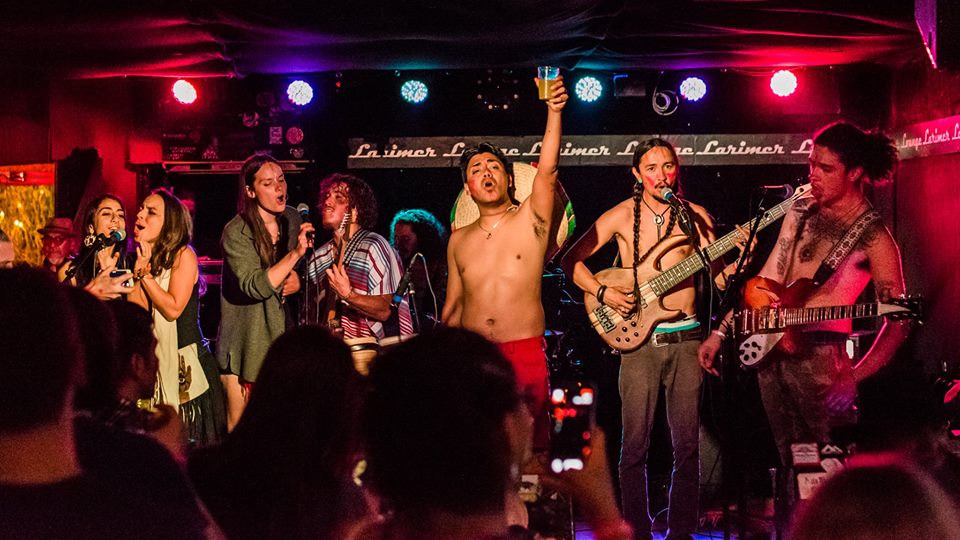
Jyemo Club
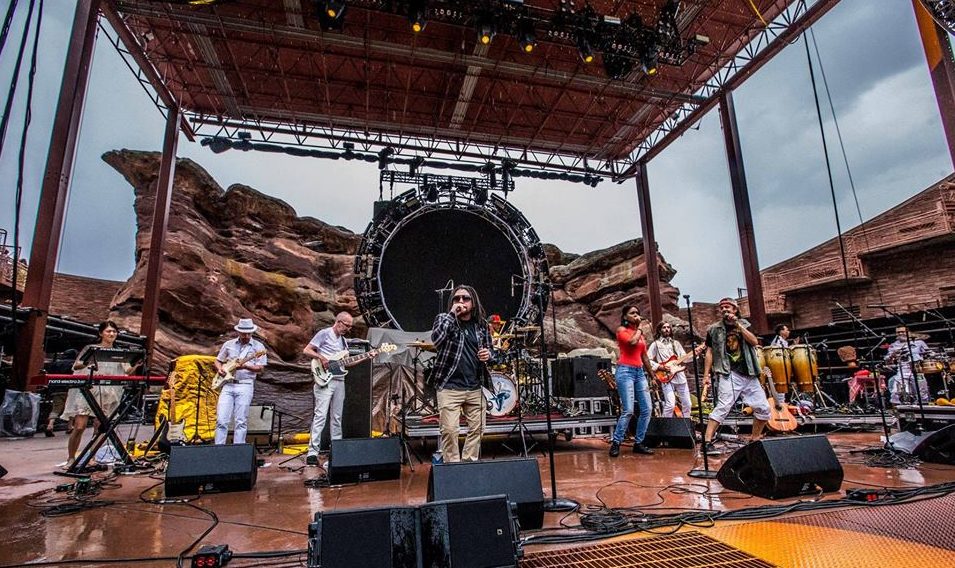
303 Magazine: Where does your music take its inspiration from in terms of countries/regions/genres?
Jonny Jyemo: Our music is centered around different dance styles found throughout Latin America, then we infuse it with say, rock or funk styles from North America. (By the way, I say North America or U.S.A because a long time ago I was reminded by a Latino friend that this country we live in here is technically not called “America.” The United States is just one part of “The Americas.” I always keep that in mind…gotta keep that exceptionalism in check!) In Jyemo Club you will hear Latin and Caribbean styles like cumbia, reggae, bachata, reggaeton, merengue, even a bit of vallenato and Andes flavors. At the heart of it all is our message — positivity, happiness, unity, strength in numbers, revolution. Whether we are singing in Español or English, our goal is to unite all people through music. Our strategy is to play these diverse styles with respect and authenticity, so as to unite people from different backgrounds. A Jyemo Club show is a demonstration in action, that we can all rock out and get things done as one people.
303: How have you made it your own?
JJ: The intent of Jyemo Club is to treat these different Latin music genres as if they were alive and breathing, like a person. Each rhythm is like someone who has traveled from the region they came from and landed here in Colorado. Along the way, they picked up different influences just like we do when we go abroad. So by the time they get here, you might hear a funk beat over a bachata or an African guitar line on a cumbia. Maybe even some metal over a soca beat! We mix in these influences while still maintaining the essence of the original flavor. You can still dance the original step to the music, you might also come up with some new moves.
303: In a city like Denver, how is your music overall received?
JJ: We are still a relatively young band. 2017 was our first year of playing out and we were lucky enough to get a big break by playing Red Rocks opening for String Cheese Incident. Although their crowd probably isn’t necessarily someone who seeks out the kind of music we play, they gave us nothing but love and we rocked them pretty hard. That show kinda gave us a little buzz around the state and definitely generated some interest among music fans. We also get a lot of encouragement and support from our colleagues in the music industry. That means so much to us. We’re still trying to get in the right venue with the right bands and really bring together under one roof the different communities we feel our music can connect with. That being said, our crowds seem to grow with each show we play, and I notice more and more familiar faces and crews that have become true “Cluberos.” (a die-hard Jyemo Club fan!)
303: Have you had difficulties within the music industry in Denver that are relevant to the music you play and your heritage?
JJ: In Denver, I notice a hesitancy for people of different backgrounds: Latino, black, white, Asian…to be truly open and gather in the same place to enjoy a show together. I’ve also noticed a lot of people from this country tend to “turn off” if they hear music that isn’t sung in English. There is so much great music out there, don’t be afraid! Jyemo Club wants to give you that opportunity to expand your horizons and interact with people from various cultures all together in a positive vibe. We have that diversity here in Denver, all we have to do is break down our own barriers to make it happen.
303: For people who aren’t familiar with Latin music, what would you like them to know about it?
JJ: Well, we’ve all heard some form of “Latin” style music in our lives. I would remind people who are interested or are curious to check it out that there are so many vastly different styles it’s hard for one to know where to start! For myself, I first heard Tito Puente as a teenager, and that kind of started me off on my journey. Kinda like Bob Marley is a springboard for reggae music, Tito was that for me. That led me to dive into the salsa genre and to Afro-Cuban music. Along the way, I fell in love with cumbia. Cumbia is such an enjoyable study in itself. Each country has its own particular style of cumbia, so after listening to it enough, you can pick out where that particular song is from even though it’s still cumbia. The rhythm is so nice, heavy and steadfast, I sometimes listen to it all day. I could go on and on about the different genres that fall under the Latin label. Bachata from the Dominican Republic is played so skillfully. Vallenato from Colombia is so rockin’, Brasil has a whole other book of styles, oh jeez I could go on and on. I guess I would say whatever first grabs your ear or feet or heart, follow that style. It will lead you up to a tree with many branches!
303: Who, as a group, are your favorite Latin musicians right now? (Can be local or worldwide)
JJ: Wow, that is a very difficult question to answer. Being that Jyemo Club is a 10-piece band, you can imagine how many influences make up this music. As far as Latino musicians, Residente from Calle 13 is an inspiring example to us. He keeps it real and is a true revolutionary musical warrior. Same for Manu Chao, (although he’s Spanish) Cultura Profetica, Lila Downs, Chocquib Town, Juan Luis Guerra, Joan Soriano, NG La Banda, Los Van Van, Havana d Primera, Gondwana, Carlos Vives, Savia Andina…honestly, there is so much quality music out there it’s hard to think of them all. Also want to give a shout out to our local crews- Los Mocochetes, La Candela, Izcalli, 2MX2, Sabor de la Calle and Grupo Kaoba.
iZCALLi
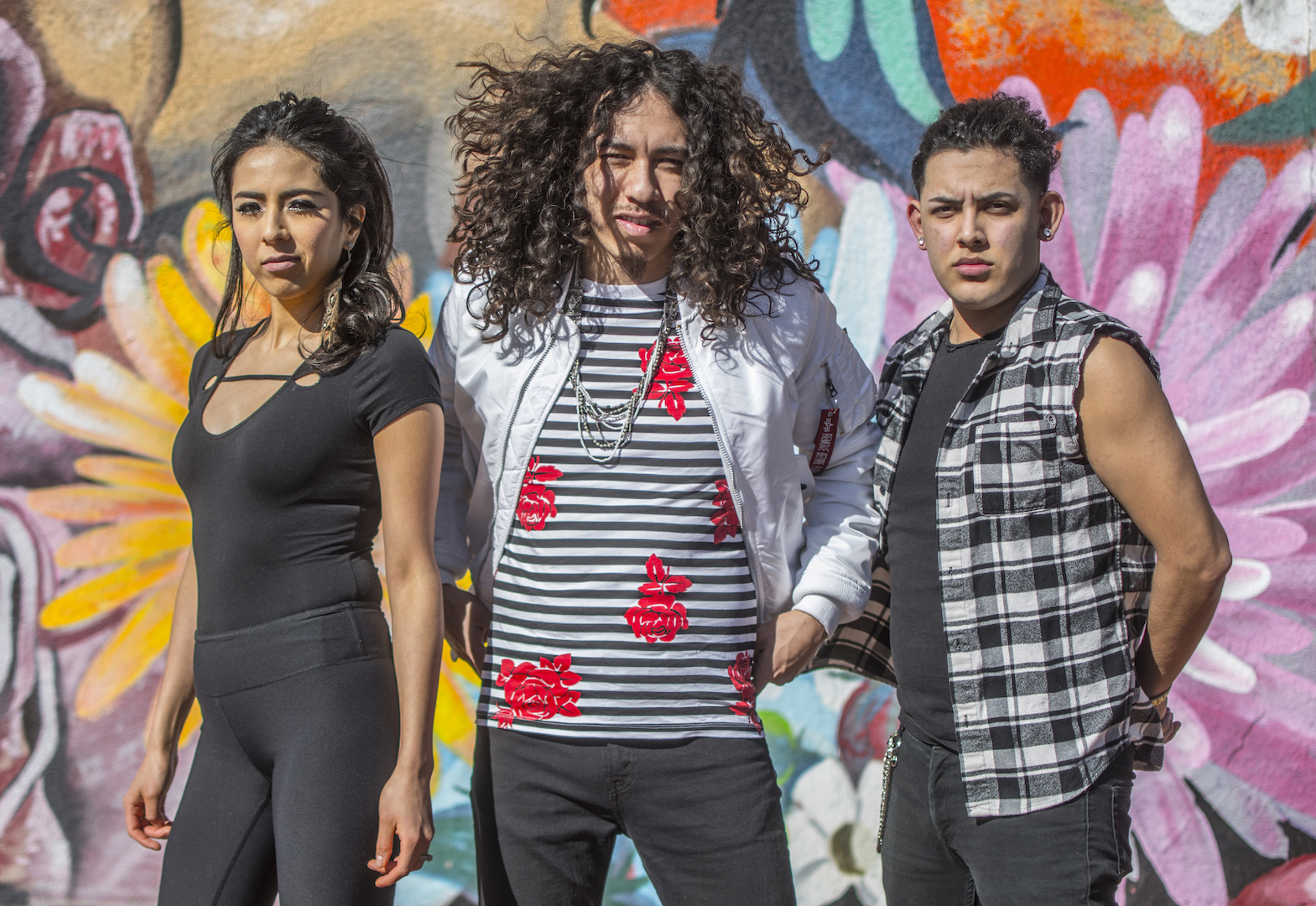
303 Magazine: Where does your music take its inspiration from in terms of countries/regions/genres?
Miguel Avina: I would have to say that our musical inspiration comes mainly from U.S. music, we grew up on MTV when it was still playing videos, as immigrants brought to the U.S in the early ’90s we learned about “American pop-culture” from television. ’90s bands like The Cranberries, Pearl Jam, Nirvana were early inspirations for us. We moved back to Mexico 1997-2001 but never really disconnected from our taste for American music, so you can imagine we listen to a lot of Blink 182, Green Day, The Cardigans, etc. At the time we did not really gravitate to our Latin side of things. As we matured I would say we recognized classic rock such as Led Zeppelin as a definite inspiration. Other acts such as The White Stripes, The Killers and Muse have been bands we love. What has been unique about the “Latin flair” that is noticeable in our music has been that as you can tell by our musical tastes, it has been purely unintentional. Our Latin “sound”, when it shines, probably comes from the fact we are undeniably proud of our heritage and try to be as authentic as possible.
303: In a city like Denver, how is your music overall received?
MA: We have been fortunate enough to have a great reception in Denver. Over the last 13 years that the band has been active we have seen bands come and go, trends change, some things fade, others stay, but we have remained adamant and true to our purpose of working hard to put out good music that we can be proud of. That has only been possible because we have recognized that Denver is a city where cultural diversity is needed and despite what some people may say, in our experience, we feel it is wanted. Yes, it was hard work to remove the label of “The Mexican Band” but we know the hard work has paid off as we are fortunate enough to be mentioned alongside the biggest acts in the scene just as a “Denver Band.”
303: Have you had difficulties within the music industry in Denver that are relevant to the music you play and your heritage?
MA: At the beginning, I’m talking about 2007-2009, we had a rough time booking shows at the “trendy spots,” mainly because we had not proved ourselves. We didn’t give up though, and despite the fact that we were opening for international acts such as Hombres G, Enanitos Verdes at The Gothic and The Ogden, we didn’t have any scene credit yet. So we would try to get booked at the trendy venues and were usually offered pretty poor spots. Honestly, we did have a tough time breaking into the “American scene” but thanks to key members of the scene, we started getting our first breaks. Bands like The Photo Atlas, All Capitals, Petals of Spain were instrumental to us breaking into the scene. Once we broke in, I think that we still had a self-imposed label of being a “Mexican band”. It took us a few years to shake that off, but once we did it elevated us to a new level.
303: For people who aren’t familiar with Latin music, what would you like them to know about it?
MA: To me, Latin music is a type of music that can be many times misrepresented and misunderstood. I would like them to know that Latin music is not just mariachi, cumbia, norteño, or salsa. I’d invite them to open their ears to other flavors of Latin music.
303: Who, as a group, are your favorite Latin musicians right now? (Can be local or worldwide)
MA: We love Residente, he also plays in a group called Calle 13. In recent years he has been very dynamic and has been an artist that has explored far beyond his comfort zone, he has an awesome documentary on Netflix that documents that.





